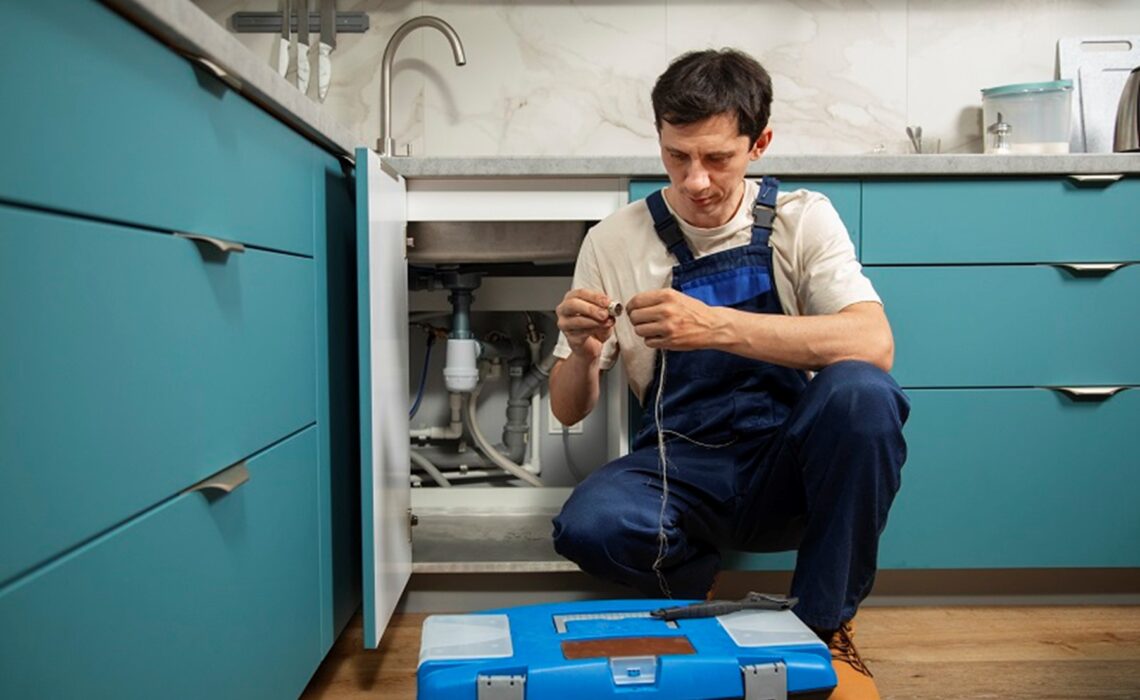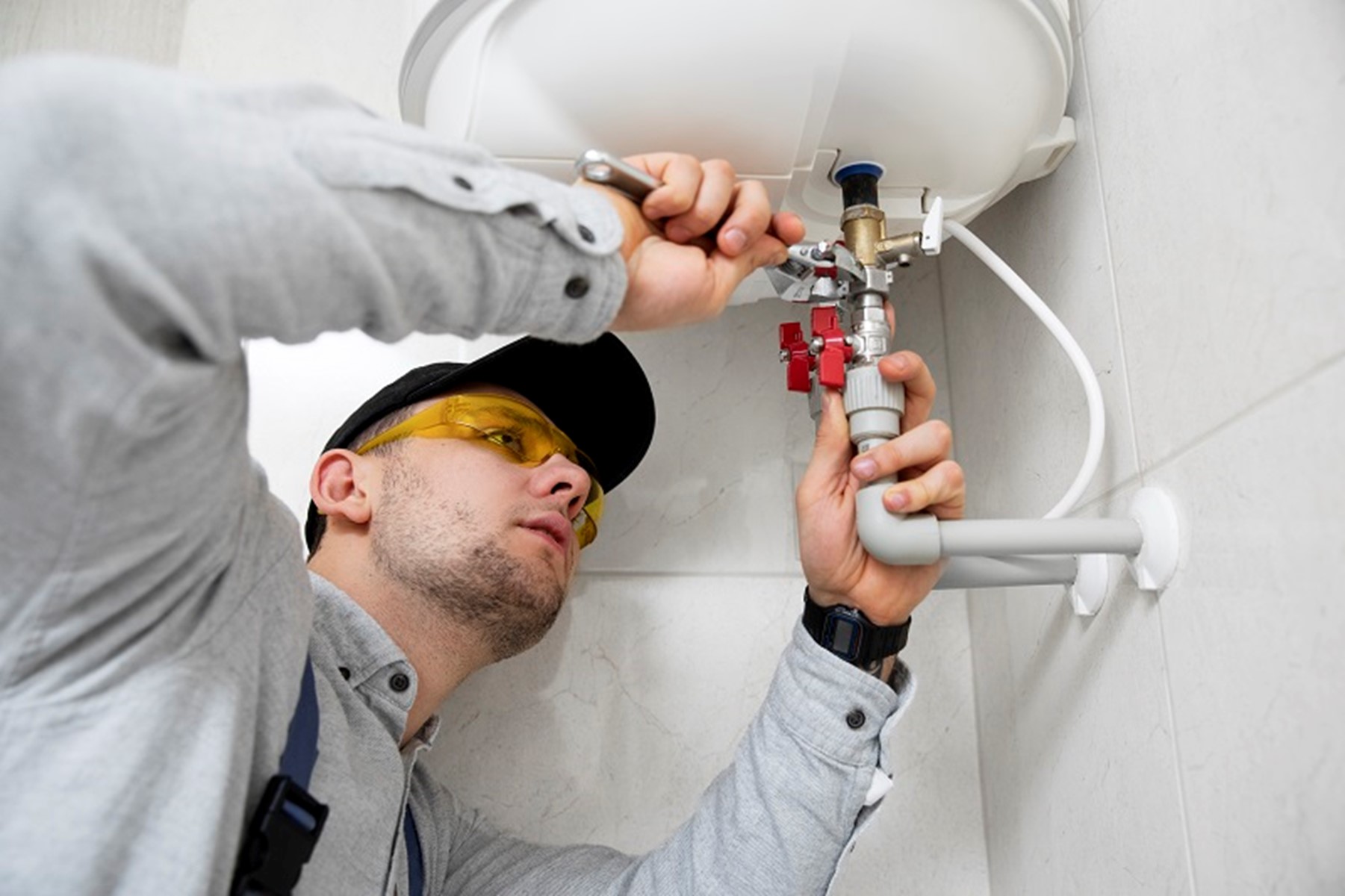
Has it ever crossed your mind what professional plumbers do besides literally ‘plunging’ into foreboding drain pipes and fixing squeaky faucets? Each time you’re able to enjoy warm water in your shower, or your dishwasher doesn’t flood your kitchen with suds, you have a professional plumber to thank. But is that all they do? How much training does it require? Let’s delve into the day-to-day realities of a professional plumber to appreciate their skills better.
Plumbing is more than a mere household fixture repair service. It’s an intricate field combining science, craft, safety regulations, and an ever-evolving myriad of skills. Also, the profession requires strong problem-solving capabilities and physical stamina, as plumbers often deal with difficult environments. This post aims to explore the varied aspects of a plumber’s job to help you understand the nature of this crucial profession in our society better.
To best unpack the responsibilities, capabilities, and challenges associated with plumbing, it’s essential first to identify which sector of the industry a plumber works within and what unique aspects their role entails. In pursuit of this, we will visit various sub-topics and shed light on a professional plumber’s life to illuminate the task you ask for when you dial that urgent call.
What Services Do Professional Plumbers Offer?
Professional plumbers perform a vast array of services. From repairing crucial pipeline fractures to installing state-of-the-art heating systems in luxury apartments, their skillset is as diverse as it is necessary. They are trained to work with complex water, drainage, and heating systems. They can expertly handle new installations, trouble-shoot existing defects, and perform maintenance jobs.
Plumbers also navigate building codes to ensure safe and proper installation. Clients rely on their advice to save water and energy, leading to long-term cost savings. Contrary to popular belief, plumbers are seasoned professionals knowledgeable in their field, providing expert advice and service.

Moreover, plumbers play a crucial role in large scale construction projects, planning and executing extensive plumbing systems that align with complex building designs. These tasks require thorough knowledge and precision.
What Are The Daily Tasks of A Professional Plumber?
A plumber’s typical day includes tasks like installing pipes, appliances, and fixtures in new constructions, diagnosing issues in existing plumbing systems, and emergency calls where they undertake urgent repairs. They are adept at interpreting blueprints and building specifications, and use them in planning plumbing layouts.
Plumbers are also known to replace old or dysfunctional parts with newer, more efficient ones, and use various plumbing tools to complete their jobs successfully. Manual dexterity and physical stamina become paramount, as tasks can get physically demanding.
On a corporate level, plumbers may also supervise teams, interact with clients, manage inventory, prepare estimates, coordinate with suppliers, and ensure adherence to safety regulations.
Skills Required and Training Process
Professional plumbers require both technical skills and soft skills for career advancement. These include problem-solving skills, attention to detail, strength, stamina, and customer service abilities. Besides these, they should be comfortable with hands-on tasks and possess a firm understanding of the systems they work with.
Aspiring plumbers go through a comprehensive training process that includes a mix of classroom learning and hands-on apprenticeships. They study plumbing codes, safety, and blueprint reading, in addition to heating and ventilation systems.
The Pros and Cons of Plumbing Profession
Plumbing offers career stability, good pay, and substantial benefits. It caters to both individuals who prefer fieldwork, and those who like desk job-like roles. However, it does have its share of challenges. The work can be physically demanding, may involve working in hazardous conditions, and plumbers may need to be on-call for emergencies.
Future of The Plumbing Profession
The future of the plumbing profession seems bright. With constant advancements in technology, plumbers need to stay updated on the latest tools and techniques. Sustainability is another area that the plumbing industry is pivoting towards, and professionals skilled in sustainable plumbing techniques will be in demand.
Conclusion
As we have seen, the life of a plumber is much more than meets the eye. Their work is multi-faceted and requires a great deal of skill, training, and dedication. Next time you step into a well-heated room or enjoy an efficient modern kitchen, think about the professional plumbers who’ve worked hard to make that possible. Much more than emergent handymen, beneath their toolkit lies a wealth of knowledge, a treasure trove of skills, and a day-to-day regime committed to expert craft and service delivery.
Plumbers are, after all, architects of comfort and functionality within our homes, offices, and spaces in-between. They play a vital role in maintaining the health and wellbeing of our communities, and we owe much to their oft-unsung contribution. A world without skilled plumbers would be a world less comfortable, less safe, and simply less livable.
Strong trade professionals like plumbers help bust the stereotype of blue-collar jobs and deserve an appreciation that matches their expertise. By understanding their day-to-day tasks and acknowledging their dedication, we get a deeper respect and appreciation for these everyday heroes in our society. So here’s a salute to their unwavering commitment, skill, and the critical services they provide that keep our world running smoothly.
